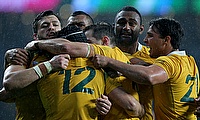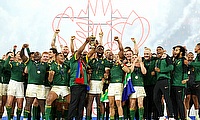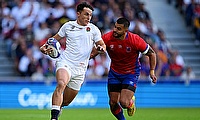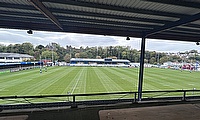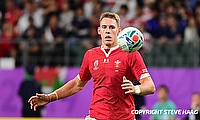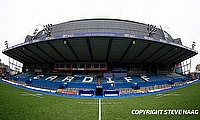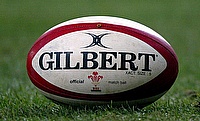World Cup History - Wales' South Sea Jinx
The history of the World Cup is not littered with upsets, like for example the FA Cup. It is a relatively new competition and rugby is a sport based around the traditional powerhouses of the game. There is a gulf in skill, fitness and professionalism between these nations and the 6 Nations and Tri-nations sides leaving the so called minnows little hope of causing major upsets. However, there is one nation that seems prone to falling victim to shock defeat and against sides from the same geographic region. If you are Welsh now is the time to look away or have to suffer by reliving defeats at the hands of Samoa and Fiji.
Arguably the biggest upset in the history of the World Cup game in the 1991 tournament. Tournament newcomers Western Samoa faced Wales, who had finished third in the previous competition, in the opening game of their group. At this point large swathes of the population had no idea where Western Samoa was and to be honest had never even heard of the place. The team entered the tournament without any hope of winning a game according to most pundits. All that was about to change.
As the crowds gathered at the Cardiff Arms Park expectation was high for a Welsh victory. Supporters, some dressed as Samoans, packed into the ground in good spirits and eager to see a large winning margin. It soon became apparent that this was not going to happen. The Samoan side, who had had a clearing the air meeting the night before, played like a side united. Welsh players didn't know what had hit them as time and time again they were knocked backwards in tackles and around rucks.
Samoa took their chances, both in terms of tries and penalties, and kept the scoreboard ticking over. Wales on the other hand squandered possession and kicker Mark Ring had an off day with the boot. By the time of the final whistle the scoreline read Wales 13 “ Western Samoa 16. While Wales collectively drowned their sorrows and coined the phrase "Thank goodness it wasn't the whole of Samoa , Western Samoa partied. Thousands had packed into the national stadium at home to watch a live broadcast of the game, many families not having televisions and those that did rarely had satellite channels that were broadcasting the game, before starting a mass celebration.
Looking back it was not hard to see the potential upset. The Western Samoa side contained many names that would become household names in rugby circles “ Pat Lam, Brian Lima and Frank Bunce. The side then qualified for the quarter finals by beating Argentina and narrowly losing to eventual winners Australia. The journey ended at the quarter finals with defeat to Scotland, but the repercussions were huge. Samoa found themselves firmly on the global stage and over the coming years found themselves in demand for friendly internationals against the home nations as well as New Zealand.
Wales' defeat against Samoa in 1991 and their subsequent lose to Australia meant that they did not qualify for the quarter final stage. In fact they wouldn't progress from the group stage until the 1999 tournament, when once again they came up against a Samoan side. Renamed Manu Samoa and with a handful of players remaining from 1991 the Samoans were entering the tournament on the back of 2 world cup quarter final appearances. Wales, on the other hand, were on a 10 game winning streak when they came up against the Samoans in their final group game and had home advantage.
Wales began well, overpowering their opponents up front and racing to an early lead. Fly half Neil Jenkins became the World's leading points scored with his first conversion which added to the good mood around the stadium. The mood started to turn sour and Wales seemed to relax and let mistakes creep into the game. With each Wales mistake came a Samoan counter until the turning point of the game when Jenkins threw a loose pass which let Pat Lam intercept and scamper through for a try. With renewed confidence Samoa pressed on and eventually triumphed 38-31. It was enough to secure a spot in the quarter final playoffs with Wales sneaking through to the quarter finals outright on points difference.
Samoa have suffered since the 1999 World Cup as the IRB have tightened edibility rules. Players can no longer switch allegiance like the likes of Pat Lam of Stephen Bachop, both key players for Samoa, had having represented the All Blacks and Samoa. The South Sea Islanders have always seen a string of players move to New Zealand, but could no longer tempt them back once their All Black career was over. Over the following years it seemed like there would be no more heroics by the island nations “ until 2007 when Wales faced another island nation Fiji.
As the sides took the pitch in Nantes both knew that a victory would see them progress to the quarter finals. Fiji had shown glimpses of what they were capable of during the tournament, whereas Wales had failed to get going and were pushed hard by Canada in their opening match. Once again the warning signs were there and when Fiji raced into a 25-3 lead during a 10 minute purple patch in the first half. It wasn't until Fiji were reduced to 14 men when try scorer Qera was sin binned. By early in the second half Wales had gained the lead, scoring three tries of their own, and looked to build on their 29-25 lead.
Fiji kept racking up points through the boot of Nicky Little and went into the final 10 minutes with a slender 2 point lead. When, with 6 minutes to go, Welsh flanker Martyn Williams intercepted a loose pass and went over it seemed like Wales would close the game out. That was not the case and three minutes later Graham Dewes crossed at the other end of the field to send Fiji into dreamland and Wales on an early plane home. Welsh coach Gareth Jenkins lost his job before Wales were even on the way home such was the backlash of the defeat in Wales.
Whether it is the skill and flair of the Fijians or the brutal forward play of Samoa, Wales seem to struggle against the South Sea Islanders at the World Cup. Next month Wales will have to play both of them in this year's tournament and it would take a fool not to consider that Wales may suffer another shock defeat at the World Cup.

